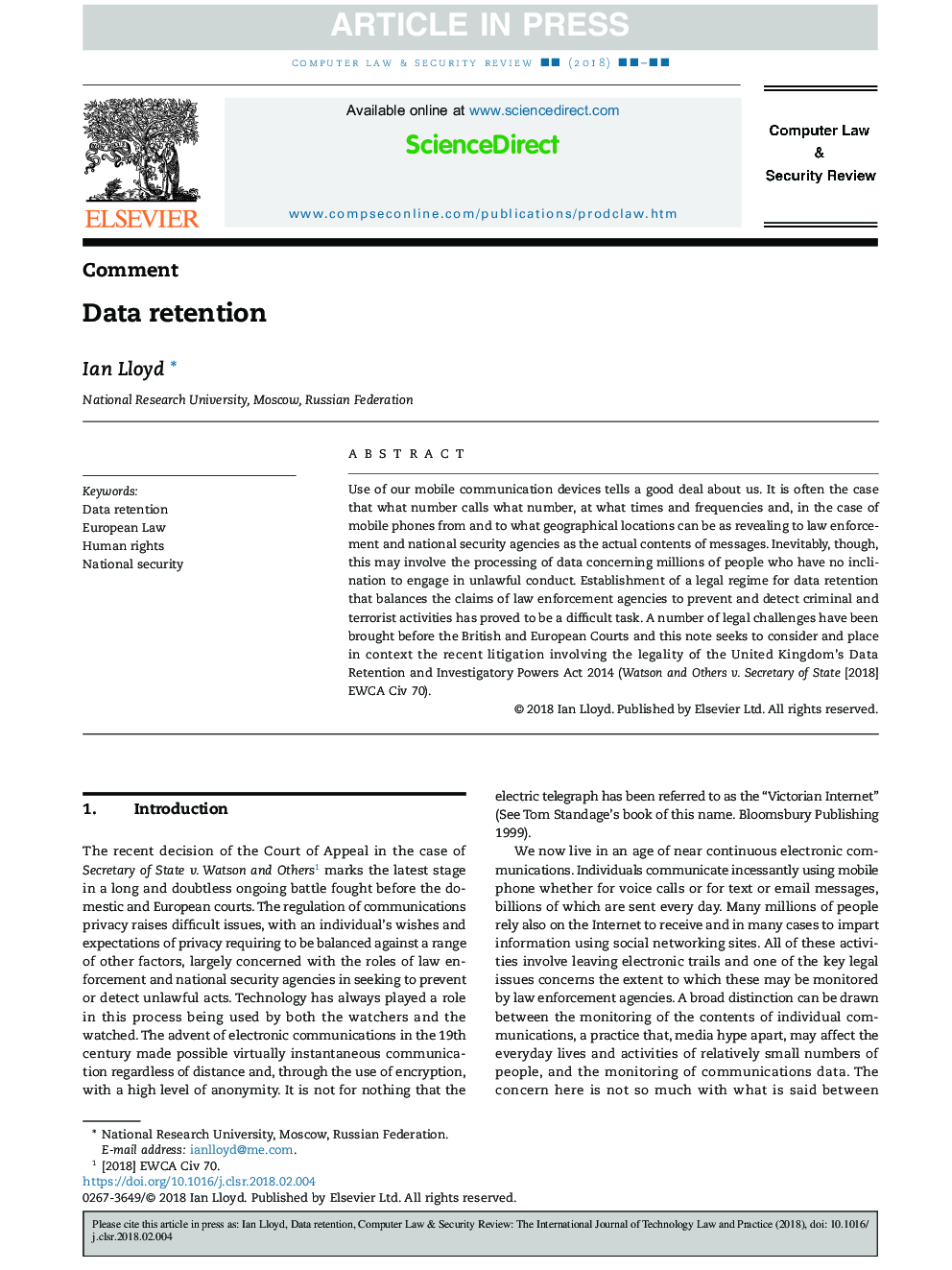| Article ID | Journal | Published Year | Pages | File Type |
|---|---|---|---|---|
| 6890551 | Computer Law & Security Review | 2018 | 4 Pages |
Abstract
Use of our mobile communication devices tells a good deal about us. It is often the case that what number calls what number, at what times and frequencies and, in the case of mobile phones from and to what geographical locations can be as revealing to law enforcement and national security agencies as the actual contents of messages. Inevitably, though, this may involve the processing of data concerning millions of people who have no inclination to engage in unlawful conduct. Establishment of a legal regime for data retention that balances the claims of law enforcement agencies to prevent and detect criminal and terrorist activities has proved to be a difficult task. A number of legal challenges have been brought before the British and European Courts and this note seeks to consider and place in context the recent litigation involving the legality of the United Kingdom's Data Retention and Investigatory Powers Act 2014 (Watson and Others v. Secretary of State [2018] EWCA Civ 70).
Related Topics
Physical Sciences and Engineering
Computer Science
Computer Science (General)
Authors
Ian Lloyd,
